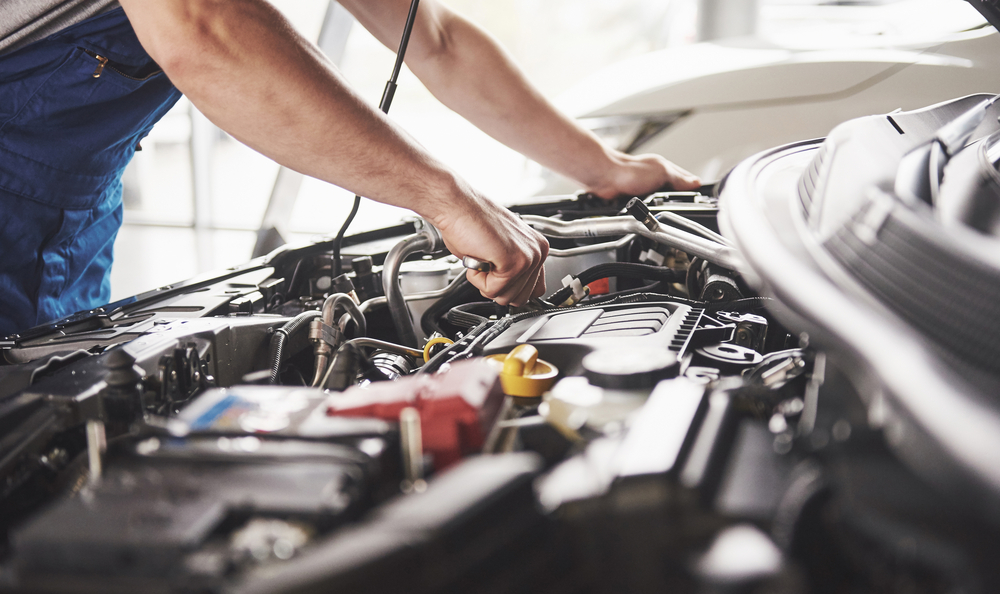How Long Do Car Repairs Take?
As a big part of everyday life, owning a car can be a journey – and one of the inconvenient questions we find asking ourselves is “How Long Do Car Repairs Take?”. Understanding how long car repairs take is crucial for car owners who rely on their vehicles for daily transportation and productivity. Whether it’s routine maintenance or unexpected repairs, knowing what to expect in terms of time can alleviate stress and inconvenience. By understanding these timelines, you can better plan and manage your vehicle’s maintenance needs, ensuring smoother experiences with repair shops and mechanics. At Kinghams Croydon, we have been industry experts since 1959. In this blog post, our experts will guide you through this process “how long do car repairs take” in detail.
Types of Car Repairs

Car repairs can be broadly categorised into several types, each requiring different levels of expertise and time commitment. Understanding these categories can give you a clearer idea of what to expect when your vehicle needs attention. Here are the main types of car repairs:
Mechanical Repairs: These involve issues with the engine, transmission, suspension, brakes, and other mechanical components. Examples include brake pad replacements, timing belt changes, and suspension repairs.
Electrical Repairs: This category covers problems related to the vehicle’s electrical system, such as faulty wiring, battery issues, or problems with sensors and actuators. Repairs may involve diagnosing and fixing electrical faults or replacing components like alternators or starter motors.
Bodywork Repairs: These repairs focus on restoring the vehicle’s exterior after damage from accidents, corrosion, or wear and tear. Examples include dent removal, panel replacement, and repainting.
Factors Affecting Repair Time
Several factors influence how long car repairs take. Understanding these factors can help you manage expectations and plan accordingly when your vehicle needs servicing. Here are the key factors to consider:
Complexity of the Repair: The complexity of the issue greatly impacts repair time. Simple repairs like changing brake pads or replacing a battery can be completed relatively quickly. Complex repairs such as engine overhauls or extensive bodywork may take much longer.
Availability of Parts: The availability of required parts plays a crucial role. If a specific part needs to be ordered and shipped, it can delay the repair process significantly.
Skill Level of the Mechanic: The expertise and experience of the mechanic performing the repair can affect how efficiently and effectively the repair is completed. Skilled mechanics can diagnose problems more accurately and perform repairs more quickly.
Shop Workload and Scheduling: The workload of the repair shop and their scheduling practices can impact repair times. Busy periods may lead to longer wait times for appointments and repairs.
Diagnostic Time: Identifying the root cause of a problem through diagnostics can take time. Thorough diagnostics are crucial for accurate repairs but can add to the overall repair duration.
Read More: How Often Does An Alfa Romeo Need Servicing?
Do Garages Charge to Look at Your Car for Bodywork Repairs?
When it comes to bodywork repairs, it’s common for garages to charge a fee to inspect your vehicle and provide a detailed estimate. However, this can vary depending on the garage and the nature of the damage.
Benefits of Finding a Garage Specialising in Crash Damage or Bodywork Repairs
- Expertise and Specialisation: Garages that specialise in crash damage or bodywork repairs have the necessary expertise, equipment, and trained technicians to handle complex bodywork issues. They can provide more accurate estimates and high-quality repairs that restore your vehicle to its pre-accident condition.
- Precision and Quality: Specialised body shops use advanced tools and techniques to ensure precise repairs. This includes proper alignment, seamless paint matching, and ensuring structural integrity, which might not be as meticulously handled in general repair shops.
- Faster Service: These specialised garages often have better access to necessary parts and materials, allowing for quicker turnaround times compared to general garages that may need to order parts or lack specific tools.
Insurance-Approved Garages and Inspection Charges
- Insurance Handling: Insurance-approved garages are typically vetted and trusted by insurance companies to provide quality repairs. These garages often have agreements with insurers to handle inspections and repairs, streamlining the process for the vehicle owner.
- Cost of Inspection: Many insurance-approved garages include the cost of the initial inspection in the repair bill, meaning you might not have to pay upfront for the inspection. They conduct a thorough assessment to provide a detailed estimate, which the insurance company then reviews and approves.
- Warranty and Assurance: Repairs carried out at insurance-approved garages often come with warranties, ensuring that the work meets high standards and any issues are promptly addressed.
Read More: Do All Mechanics Work on Subarus?
Typical Car Repair Times

Understanding typical repair times can help car owners plan accordingly and manage their expectations. Here are rough estimates for various common car repairs:
How Long to Repair Headlights
Average time: 1 day
Replacing or repairing headlights usually takes about a day. This involves removing the old headlight assembly, installing a new one, and ensuring proper alignment. The availability of headlight assemblies can vary based on the vehicle’s make and model. In most cases, these parts are readily available, but some models may require special orders, potentially adding to the repair time.
Bumper Damage – How Long to Fix?
Average time: 1-2 weeks
Fixing bumper damage involves several steps, including assessing the damage, removing the bumper, repairing or replacing it, and then colour matching and painting. The process of colour matching and ensuring a seamless finish can be time-consuming, especially for custom or unique paint jobs. This meticulous process is necessary to maintain the vehicle’s aesthetic and structural integrity.
How Long to Fix Suspension Damage
Minor/moderate damage: 4-5 days
Severe damage: 2-3 weeks (if repairable)
Suspension repairs vary significantly based on the extent of the damage. Minor issues, such as replacing struts or control arms, can be completed in a few days. Severe damage requiring extensive work or complete replacement of suspension components can take weeks, especially if specialised parts need to be ordered.
Read More: How To Choose Top Garage for Car Repairs And Servicing in Croydon?
Alloy Wheel Damage Repair Time
New wheel: 3-4 days plus fitting time
Repairing alloy wheels typically involves either straightening and refinishing the existing wheel or replacing it entirely. Ordering a new wheel and fitting it can take several days, depending on availability. Refinishing an alloy wheel involves cleaning, repairing any damage, and repainting or powder-coating the wheel, which also takes a few days.
Time Taken to Repair Exhaust
Average time: 1-2 days
Common exhaust repairs include fixing leaks, replacing sections of the exhaust system, or installing a new exhaust. These repairs usually take 1-2 days. The availability of specific exhaust parts and the complexity of the exhaust system can affect the repair duration.
Engine Servicing Times
Full service: A few hours
A full engine service, which includes oil changes, filter replacements, and system checks, typically takes a few hours. This service is essential for maintaining engine health and performance.
Wheel Bearing Replacement Times
Average time: 1-2 days
Replacing wheel bearings involves removing the wheel and hub, pressing out the old bearings, and installing new ones. This process usually takes 1-2 days, depending on the vehicle and the availability of parts.
Read More: What Are The Signs To Visit A Fiat Service Centre?
How Long to Fix a Head Gasket
Average time: 4-7 days
Repairing a head gasket is a labour-intensive process that involves disassembling a significant portion of the engine. This repair can take anywhere from 4 to 7 days, depending on the engine’s complexity and the extent of the damage.
Failed Cambelt Repair Time
Intact belt: 1-2 days
Broken belt: 1-2 weeks
Replacing an intact cambelt is a relatively straightforward process that can be completed in 1-2 days. However, if the cambelt has broken and caused damage to other engine components, the repair can take 1-2 weeks, depending on the extent of the damage and the availability of parts.
Variable Valve Timing Fault Time
Average time: 2-3 days
Fixing a variable valve timing (VVT) fault typically involves diagnosing the issue, replacing faulty components, and testing the system. This process usually takes 2-3 days, depending on the complexity of the system and the availability of parts.
Read More: What Are Anti-lock Brakes?
Final Thoughts
Understanding car repair times is crucial for managing expectations and planning. Factors such as repair complexity, parts availability, mechanic skill, and shop workload all influence how long repairs take. Car owners should set realistic expectations and consider potential hidden damages, especially after minor accidents. Proactive communication between mechanics and customers is essential for a smooth repair process, ensuring transparency and trust. By keeping these points in mind, car owners can better navigate the repair process, maintain their vehicle’s health, and enjoy peace of mind. For reliable and efficient repairs in Croydon, choose Kinghams Croydon. With our expert team and commitment to quality, we ensure your vehicle is in the best hands, providing you with peace of mind and exceptional service.



Leave a Reply